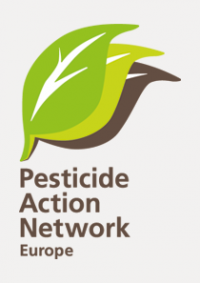As required by Regulation (EC) 1107/2009:
1. Apply the precautionary principle and ensure a high level of protection of human health, animal health and the environment in line with the provisions of the EU law. Member States and the European Commission shall also take preventative measures, when the first evidence of potential harm appears. More specifically:
2. Strictly apply the hazard-based approach and the approval criteria, including by:
- Immediately banning active substances that do not meet the approval criteria in relation to human health and/or the environment and applying the precautionary principle in cases of contradictory results
- Putting an end to the repeated prolongations of the approval periods of active substances particularly of those for which concerns have been raised by the European Food Safety Authority (EFSA), Member States or the European Parliament.
- Stopping the abuse of the ‘confirmatory information’ procedure to approve substances whose safe use has not been established by EFSA;
- Stopping the abuse of the derogation to provide an “emergency authorisation” to products with substances that have been banned in the EU because of human health and environmental concerns, as directed by the Judgement of the European Court.
3. Strengthen the assessment of the toxicity of pesticides, including by:
- Addressing existing gaps in human and environmental risk assessment by updating or adopting new relevant guidelines and regulations (e.g. data requirements for neurotoxicity & immunotoxicity for humans; toxicity to amphibians, terrestrial invertebrates, aquatic species and wild bees for the environment);
- Regulating ‘cocktail’ effects by establishing a risk assessment for mixtures that takes into account additive and synergistic effects of all pesticide residues that people are exposed to daily, as well as of other chemicals. While this method is developed an additional mixture assessment factor of at least 10 should be applied.
4. Ensure the objectivity and reliability of data and studies used in pesticide risk assessment, including by:
- Giving important weight to independent and peer-reviewed studies in risk assessment and amending the relevant guidance document on Article 8(5);
- Increasing expertise among scientists involved in risk assessment by requesting to provide scientific peer-reviewed publications and ensuring that all areas of human and environmental health are adequately covered. EU scientific agencies should further remunerate non-staff experts taking part in scientific panels or working groups, and should be allowed to reach out to high-level experts.
5. Ensure the independence of pesticide risk assessment, including by:
- Setting an EU harmonised, strict ‘conflict of interest’ policy for those involved in risk assessment procedure, applicable to EU and national competent authorities and experts representing Member States in EFSA’s bodies;
- Strengthening EFSA’s existing independence policy, including by extending the cooling off period applied to experts to 5 years and applying a zero tolerance policy to any funding by the chemical industry.
6. Increase the transparency on the European Commission’s work and Member States’s position, including by:
- Complying with the judgement of the European Court of Justice, highlighting that the Commission cannot systematically refuse access to its working documents and positions from Member States;
- Making systematically public the individual position of Member States in the minutes and publishing them no later than two weeks after the day of the meeting;
7. Ensure the strict assessment of pesticide products foreseen by Regulation (EC) 1107/2009, in particular by:
- Adopting a whole-mixture approach assessment of the long term effects on human health and the environment of the representative formulations during the procedure of active substance approval;
- Addressing chronic toxicity of all components of pesticide products individually (co-formulants, safeners and synergists);
- Ensuring a risk assessment of all pesticide products sold at national-level, with relevant data in line with the data requirements from Regulation (EC) 284/2013
As pledged under the EU Green Deal & Farm to Fork Strategy:
8. Reduce significantly the use of synthetic pesticides and replace them with safer non-chemical and ecological alternatives in line with the Sustainable Use of Pesticides Regulation proposal (SUR) by:
- Endorsing strict & legally binding pesticide reduction targets and the demands of the European Citizens Initiative ‘Save Bees and Farmers’ to reduce by 80% the use of synthetic pesticides by 2030, starting with more hazardous pesticides
- Promoting the implementation of the principles of Integrated Pest Management Principles (IPM) and prioritising agro-ecological and organic practices across all Member States;
9. Protect the general public and vulnerable groups from pesticide exposure, in relation with the SUR proposal including by:
- Prohibiting the use of pesticides in all spaces used by the general public and their surroundings;
- Setting buffer zones to at least 100 metres around sensitive areas and at least 50 metres around houses, gardens and roads;
- Implementing health and environmental post-market monitoring;
As pledged under the EU Green Deal & Chemical Strategy for Sustainability
10. Prohibit the export of all EU banned pesticides without further delay and adopt a zero-tolerance policy for such residues in imported food. Pesticide active ingredients and products which are prohibited for use in the EU because of health and environmental concerns are still produced within the Union and exported to third countries. Often, they find their way back to Europe as residues in imported food.
- Europe should lead by example and stop exporting pesticides whose human health and environmental toxicity is proven and set a zero tolerance for residues of such pesticides in imported food.
